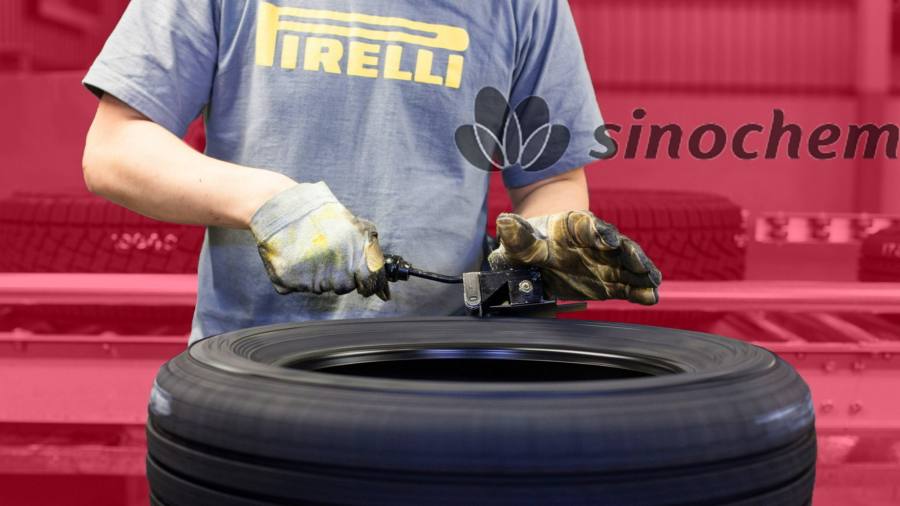In a move to protect national security, Italy has implemented measures that limit shareholder rights for Sinochem, a Chinese chemical group, in Pirelli, an Italian tyremaker listed on the Milan stock exchange. This intervention marks a rare occurrence in an eight-year-old Chinese investment that was not previously considered a strategic national asset. Pirelli, known as a crown jewel of Italian industry, was acquired by a previous Chinese state-owned chemicals group in 2015 for $7.7 billion.
The Prime Minister, Giorgia Meloni, announced on Friday that the new measures were passed under the “golden power” foreign investment screening mechanism. Their purpose is to safeguard Pirelli’s independence and management. This comes after Pirelli CEO Marco Tronchetti Provera lobbied the Italian government to intervene in the company’s shareholding arrangements. He raised concerns about the increasing control exerted by the Chinese government on Pirelli’s business and governance decisions.
Tronchetti Provera, who holds a minority stake in Pirelli, has been in disputes with his Chinese partners regarding day-to-day management for several years. He has unsuccessfully attempted to convince them to sell part of their stake. Internal tensions within the company have also arisen over his salary, which amounted to €20.5 million in 2022.
Rome’s restrictions include limitations on accessing and sharing information between Pirelli and Sinochem, as well as requiring a four-fifths majority for certain “strategic” board decisions. These measures aim to protect “strategically relevant information and the company’s know-how,” according to the Prime Minister’s office.
Italy’s decision aligns with its efforts to strike a delicate balance in foreign policy by aligning itself more closely with the EU and the US while reassessing its relationship with China without antagonizing Beijing.
In addition to limiting shareholder rights, Meloni’s government is contemplating withdrawing from China’s Belt and Road Initiative, Beijing’s flagship overseas investment project. Italy was the only European nation to join the initiative in 2019.
Last month, the US, EU, and Japan united in their aim to “de-risk” from China, emphasizing the need to protect “certain advanced technologies that could be used to threaten our national security.”
The definition of assets of national security importance has expanded in Italy and the EU since 2019, resulting in a significant increase in applications filed under Italy’s screening mechanism, from 8 in 2014 to 496 in 2021.
Meloni’s office highlighted a specific technology critical to national strategic importance that allows for geolocation and the collection of drivers’ information through a microchip installed on the tires. They warned about the potential risks to customers and national security if this technology is misused.
Denial of responsibility! VigourTimes is an automatic aggregator of Global media. In each content, the hyperlink to the primary source is specified. All trademarks belong to their rightful owners, and all materials to their authors. For any complaint, please reach us at – [email protected]. We will take necessary action within 24 hours.


